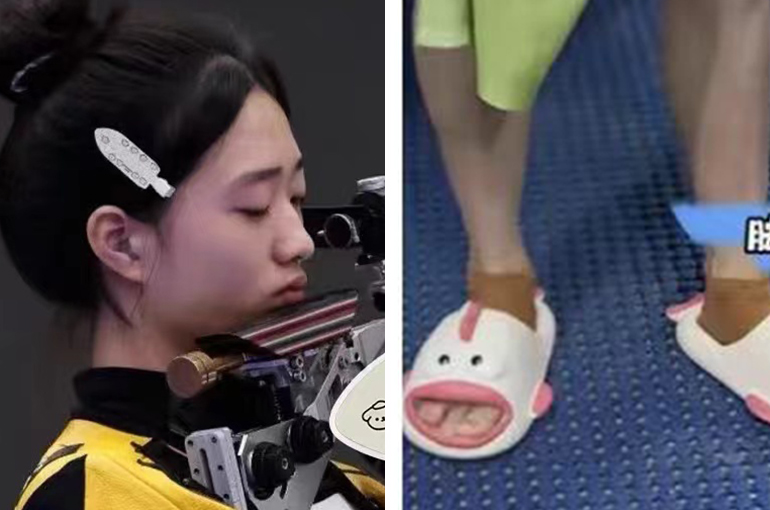 Yiwu Vendors Capitalize Quickly on Olympic Champion Craze With Puppy Hair Clips, Other Accessories
Yiwu Vendors Capitalize Quickly on Olympic Champion Craze With Puppy Hair Clips, Other Accessories(Yicai) Aug. 6 -- Merchants in China’s small commodities capital of Yiwu are rapidly latching onto the latest trends coming out of the ongoing Olympic Games in Paris. Quirky accessories won by Chinese gold medalists, such as puppy hair clips and clownfish slippers, can suddenly surge in demand and they have to respond within minutes.
When Huang Yuting won the 10-meter air rifle event, online searches for her puppy hair clip soared. The hashtag “Huang Yuting’s hair clip is cute” garnered over 100 million clicks on microblogging site Weibo. And when Quan Hongchan secured gold in the 10m synchronized platform, her clownfish slippers were suddenly all the rage.
This propelled Yiwu’s small commodities production teams into overdrive. It only takes a few minutes from noticing which products are going viral for them to communicate with the upstream and downstream of the industrial chain.
Puppy hair clips like the one worn by Huang normally cost around CNY1 (14 US cents). Yiwu vendor Ling Yeqin, which is not her real name, normally sells around 1,000 puppy hair clips a week, but after Huang’s win, she shifted more than 30,000 clips in just a few days, she told Yicai.
This was followed by Quan’s clownfish slippers, which was also trending on Weibo as soon as the diving competitions began, and chief diving judge Guo Jingjing’s white blouse has also become a bestseller.
This sort of impulse buying by people watching the Olympics and related videos is very hard to predict, and so it is difficult for manufacturers to make decisions, Ling said.
Yiwu, which sells more than 2.1 million kinds of small commodities made by 2.1 million micro, small and medium firms, subdivides manufacturing into product categories and production processes. This means that manufacturers tend to focus on a single type of product and will not change category according to different trends.
Those manufacturers that focus on accessories, for example, will closely watch the sort of accessories being worn by Chinese athletes who are likely to win gold and assess what they are made of. They will then order the raw materials and notify sellers that these products could go viral. The whole process only takes as little as a few minutes, Ling said.
Most of the products that have become popular during the Olympics are non-standard products, which unlike smartphones and mineral water, do not have unified standards for their size, weight and materials. For a non-standard product to become popular, it is almost like winning the lottery.
It only takes a few hours from athletes winning gold for their products to start trending. But it is difficult for e-commerce platforms, despite their large number of technical experts and analysts, to accurately predict which will go viral. What they can do is make decisions at certain stages based on hot topics and discussions, and buy the raw materials in batches rather than all at once.
Merchants in Yiwu rely on their experience to act appropriately when commodities become popular. If they bet on the wrong athlete or make a decision on impulse and buy too many raw materials, this could lead to financial losses and production issues.
DT Caijing is a data research media company under Yicai Media.
Editor: Kim Taylor